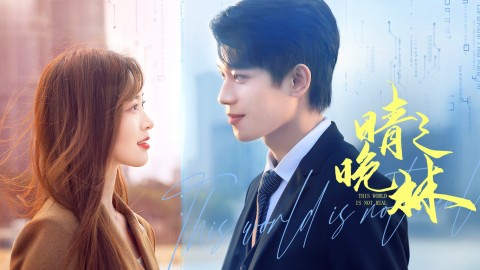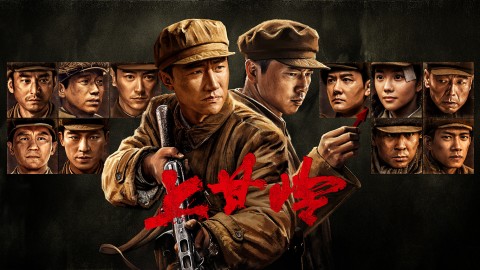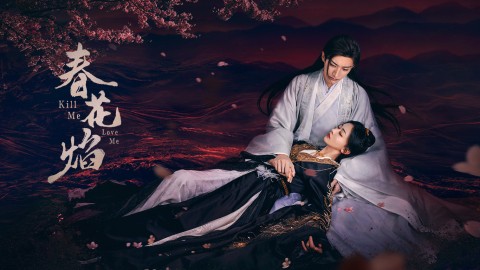Episode 8 recap: The scientist's suicide incident repeated itself.
Eight dark nights had passed, and chaos reigned in the surroundings. The sun had not risen again, but Ji Chang believed it was only temporary and that the sun would soon rise. The Eternal Era and spring would continue. Zhou Wang quickly ordered his subordinates to burn the tripod, and soon three flying stars appeared in the sky. This meant that a harsh winter was approaching, capable of freezing solid rocks into powder.
Zhou Wang then ordered everyone to undergo dehydration. Ji Chang stumbled his way to the front of the furnace and leaped inside. Just as Wang Miao was about to step forward, Zhou Wang informed him that it was enough and that the game should be exited.
This night lasted for 48 years, and Civilization No. 137 was destroyed in the severe cold. The civilization had evolved to the level of the Warring States, but the seeds of civilization remained. It would restart, embarking once again on its unpredictable evolution in the Three-Body world. Others were welcomed to log in again. Wang Miao removed his game visor and quickly returned to real life. Shi Qiang was waiting for him nearby.
Faced with the scene before him, Wang Miao felt deeply shaken. He lamented the destruction of a civilization. He also mentioned to Shi Qiang what King Wen of Zhou had told him. This place belonged to the Chaotic Era, and it seemed that the Eternal Era was an obsession in their hearts. He still hadn't fully figured out what he should do—whether to search for the laws of the Eternal Era or find a balance between the Eternal Era and the Chaotic Era. The game involved grasping the rules of the sun's movement. The two of them decided to enter the game again to explore further.
On the way, Shi Qiang encountered Mu Xing, who had come to stage a collision. Mu Xing still wanted to know about the scientific community, but Shi Qiang remained as tight-lipped as ever. In the car, he made a call to Xu Bing Bing, asking her to continue investigating Mu Xing's situation.
Sha Rui Shan quickly found Wang Miao again and enthusiastically introduced his project to him, inviting him to come and watch. When Sha Rui Shan arrived at the office, he passionately explained the cosmic 3K background radiation and the fluctuations in the radiation throughout the universe. Wang Miao didn't want to listen to him anymore because it was the same as what he had heard before.
Sha Rui Shan soon explained the details of his experiment to Wang Miao. He wanted to witness the twinkling of the universe once again. However, Wang Miao told him that the universe wouldn't twinkle tonight. Sha Rui Shan didn't believe him and stared at the screen intently. In the end, he couldn't observe any twinkling in the universe, but Wang Miao didn't want to know anything about it.
Chang Wei Si still believed that the Frontiers of Science was an international academic organization, and there was no reason to target them. As scholars, any action against them would have serious social consequences. He also suggested monitoring the top scientists in each military region's core areas and initiating protective measures if any contact or infiltration by the Frontiers of Science was discovered.
Wang Miao quickly went to Shi Qiang's office, where he witnessed Xu Bing Bing's professional abilities. Even the usually aloof Shi Qiang felt inferior in comparison. He decided to offer Xu Bing Bing a higher salary.
Chang Wei Si also knew that this game had appeared before, but no one had paid attention to it. Through investigation, he discovered that most of the people playing this game were scientists or highly knowledgeable individuals, including many from the Frontiers of Science.
Wang Miao sought answers from Shen Yu Fei once again, and he realized that Wang Miao was even smarter than he had imagined. Shen Yu Fei suggested that Wang Miao continue attending lectures to review his knowledge.
Several accidents occurred involving foreign scientists, and several military regions devised new plans. Chang Wei Si had a list of top scientists from various fields, and he immediately prepared to protect them. Meanwhile, Wang Miao and Shi Qiang continued their intense work, investigating each scientific figure one by one.
Soon, news of scientists' suicides emerged. Chang Wei Si planned to implement mandatory protection measures for other scientists, but accidents still occurred. Mu Xing, as a journalist, secretly infiltrated the residential area and started recording videos with a large camera. However, she was quickly caught by Shi Qiang. Shi Qiang also learned from a doctor that the scientists were suffering from severe floaters disease and promptly informed Chang Wei Si on the other side.



Mu Xing is a journalist who is too naive and childish. While it is true that everyone has the right to know the truth, not everyone can accept the consequences that come with it—the destruction of one's beliefs and motivation to survive. What difference is there between that and hurting someone with words?
It is indeed relevant to the current trend of public opinion. The role of media professionals should be to promote the truth, but the premise should be to give people hope. While promoting wisdom is important, it is even more crucial to consider whether the impact on society and civilization, after the awakening of people's intelligence, is positive. If a truth is enough to destroy the majority's belief in civilization and shake the foundations of their survival beliefs, I would rather fabricate lies and be the executioner of civilization. This should not be an excuse or justification for the abuse of power by new media or self-media professionals. The public should also approach things rationally and seek to explore the essence of life.
If people give up their ideals and beliefs in progress because of a slight setback or a single life-threatening diagnosis, then this civilization will eventually perish. Physics may cease to exist, or we may wake up one day only to encounter an attack and destruction from an extraterrestrial civilization. However, it is through unwavering ideals and a resolute determination to move forward that we wield the powerful tool to explore the essence of all things.
Some people lack the capacity to handle the truth, and news is also written by humans. Who can guarantee that what they write is always the actual truth? It's possible that it's just their perception and not the truth itself. The truth is often harsh, and when it is exposed, some people may not be able to handle it, and the resulting consequences can be even more difficult to accept. For example, if someone says that the Earth will be destroyed in a month, knowing this information can lead to two outcomes for the general population. Some may actively try to find solutions, but the majority of people may feel helpless and give up. This can even lead to acts of violence, looting, and other criminal behaviors, as people feel desperate and lose their sanity in the face of impending doom.
I think you're absolutely right. Your assessment on these matters is indeed objective and fair, unlike other comments. In terms of the plot and content, I wholeheartedly agree with your viewpoint. I believe many others also share the same perspective, as evidenced by the numerous likes and positive feedback. Personally, "The Three-Body Problem" has had a profound impact on my worldview and values. I find your evaluation to be truly refreshing. Overall, you've expressed it quite well.
The truth often inflicts harm, as it aligns more closely with rationalism. Modern rationality demands that we reject living in the realm of elusive beliefs and emotions.
To yearn for the truth, one must be prepared for the possibility of being defeated or even slaughtered by it, willing to sacrifice oneself on the altar of truth. The heliocentric model (within the solar system) shattered the belief and imagination that humans were at the center of the Earth.
Therefore, to pursue the truth while simultaneously refusing to abandon beliefs is a tricky endeavor. It can be seen as a form of deception. I support journalists in their pursuit of truth.
Here's a question I have: Proton clearly knows that San Shui is an undercover agent, so why doesn't he tell Eto? According to the timeline, we haven't reached the part where he says, "I'm afraid of you" because Proton has just completed "The World Shimmers for You," which means that at this point, the Trisolarans and Eto are still in contact.
It didn't take long for Shi Qiang and Chang Weisi to discuss having San Shui go undercover. Could it be that Proton has already started plotting to eliminate Eto at this point?
To the Trisolarans, Earthlings are nothing but insects, even the most loyal ETO members are seen as insects in their eyes. So whether these loyal insects live or die doesn't matter much to them.
"The Lord doesn't care" includes the life and death of these ETO members and saviors. This arrogance is how the Trisolarans view Earth's civilization.
In the end, the downfall of the Trisolaran civilization is also due to their arrogance. Therefore, "weakness and ignorance have never been obstacles to survival; arrogance is.